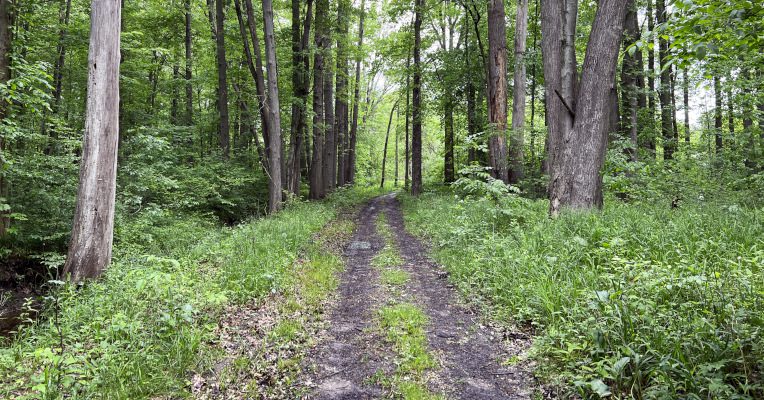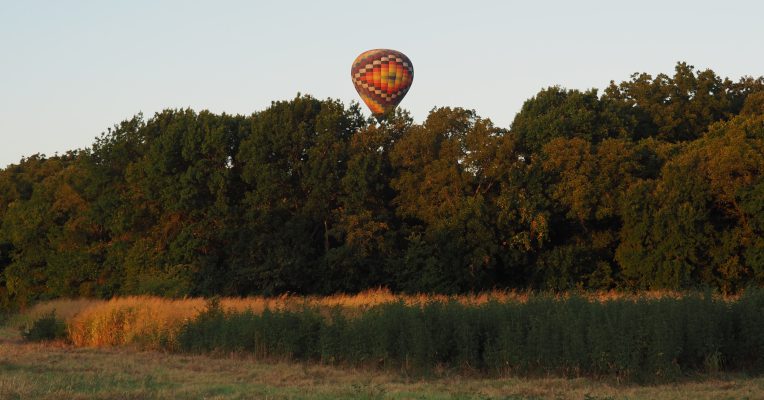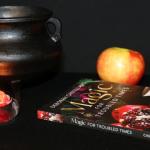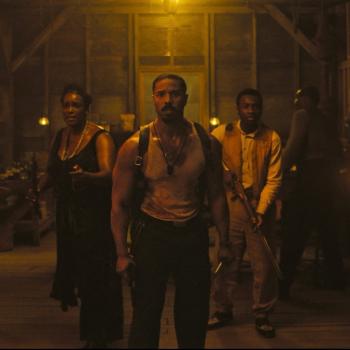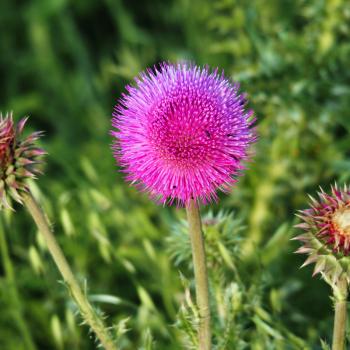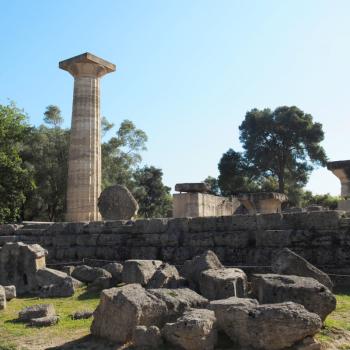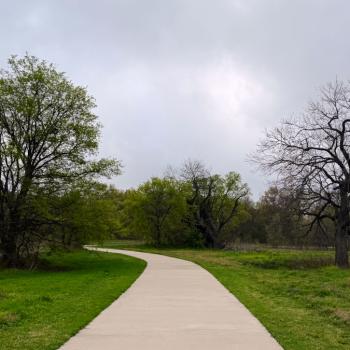We’re four weeks into a six week Under the Ancient Oaks online course on Pagan Monasticism as a Solitary Practitioner. The class is on-demand – if you missed the beginning you can start it any time. But that’s not what this post is about.
One of the core principles of monasticism – in any religious tradition – is discipline. It’s having a rule, a routine, a practice, and then doing it when you said you were going to do it (or when your Gods told you to do it) every time. If you’re trying to be a monk or a nun or a monastic or whatever term you prefer, you pray and meditate at your appointed times whether you feel like it or not, whether you’re busy or not, whether you really want to do it or not.
I find it ironic that I’m examining discipline in such depth at a time when my blogging has become so undisciplined.
A very disciplined approach to blogging
I blogged three days a week – on Sundays, Tuesdays, and Thursdays – most weeks for 13 years. That’s one of the reasons I built up the audience I did. In a post on tips for starting your own blog, I emphasized “post regularly” and “post at least weekly.”
How do you do that? As Dorothy Parker once said, writing is the art of applying ass to seat (and fingers to keyboard). Discipline matters.
I’ve taken great pride in my blogging output. I know every post isn’t great, but they’re all good – even the ones people don’t read. If I didn’t think they were good I wouldn’t post them. I have a file full of posts that were either finished but not posted or never finished, because they were poorly written or irrelevant or both.
My approach to blogging changed earlier this year.
The reasons are many, and for the purposes of this post, not particularly important. What’s important is that after 13 years, I found myself unable to continue posting three times a week.
You want to know what’s harder than forming good, consistent, disciplined habits? Breaking those habits after years of doing them regularly and diligently. It feels wrong. Not wrong as in immoral or sinful but wrong like trying to throw with the non-dominant hand. “Why are you trying to do it this way? Do it the way you’ve always done it.”
The authority of experience and the value of exploration
If my writing has any authority, it’s the authority of experience. I write about what I do, what I experience, and how I interpret those experiences. If it works for me, maybe it will work for you. If it doesn’t, that’s fine. My way is one way – find the way that works for you.
That approach carries over into my teaching. The UTAO class on Operative Magic is magic as I’ve practiced it for over 20 years. This is what I do, how I do it, and my theories on why it works. The Spiritual Practice course is prayer, meditation, offerings, and other practices as I do them on a daily, weekly, and seasonal basis.
The Pagan Monasticism course is different.
I am not a monk, Pagan or otherwise. But for the last year I’ve been getting nudged to “build the monastery.” I’m still not sure exactly what that means, but I started down this path anyway.
The further I got, the more I found other people who were doing the same things. I read and reviewed Polytheistic Monasticism: Voices from Pagan Cloisters. For the class, I brought in three of the writers from that book – Janet Munin, Syren Nagakyrie, and Kimberly Kirner – as guest speakers. I don’t have a ton of experience with this topic, so I wanted to hear from other people who are doing it.
I’m learning more about monasticism as I teach this class. Not in a “stay one lesson ahead” sense (which is a dangerous approach, even if sometimes it’s necessary), but in the sense of leading an exploratory party deeper into an area of religious practice where Pagans have rarely gone.
The necessity of discernment
When it comes to the principles of monasticism, discernment is just as important as discipline. You can be dedicated and diligent in your practice, but if you’re dedicated and diligent about the wrong things you’ll end up some place you don’t want to be.
In her essay in Polytheistic Monasticism, Rebecca Korvo talked about “the seeking out and the turning away.” We often think of monasticism as turning away from the ordinary world – going away to live in a monastery apart from the mainstream world, something that’s very difficult for Pagans (and for anyone else without access to established religious institutions). But it’s also the seeking out – responding to a call to deeper practice and deeper relationships with our Gods and spirits.
Discernment is the process by which we determine what we should seek out – what’s important and what’s not.
The primacy of spiritual practice
I think the primary reason I feel called to monasticism (at some level I haven’t precisely ascertained yet) is the value I’ve found in regular spiritual practice. It’s always been important to me, but since the pandemic began it’s been even more helpful. The constancy of practice was comforting at a time when nothing was normal. Even more important were the sacred relationships that were continuously reaffirmed and taken deeper.
I already knew that spiritual practice is important.
I learned that spiritual practice is most important.
Spiritual practice must be maintained even if the realities of life intrude. If my paying job gets too busy and too stressful, if I’m occupied with family (of blood and of choice) health concerns, if I get overwhelmed by Tower Time, spiritual practice must be maintained.
If blogging has to be reduced to insure there’s enough time and energy for spiritual practice, so be it.
And if blogging has to be reduced to insure there’s enough time and energy for building the kind of future I want and need, so be that also.
Make decisions consciously
This post is not my most straightforward writing. It’s personal and introspective. It could easily be interpreted as making excuses for not maintaining a blogging schedule that’s really nobody’s business but my own. I would be lying if I didn’t admit there’s a bit of explaining / rationalizing in it. Perhaps it really belongs in my private journal.
But there’s a point in all this, something that has wider relevance than whether I blog three times a week or three times a month or not at all.
Discipline is important. Do what you say you’re going to do and what you’re called to do.
Discernment is more important. Make sure you’re spending your time on what really matters, and not just on what you’re used to doing – even if what you’re used to doing is good and helpful.
Spiritual practice is most important. It’s the foundation of any good religion, including our contemporary Pagan and polytheist religions. Especially our contemporary Pagan and polytheist religions.
I will never stop blogging
I started blogging in 2008 because I had some religious issues I wanted to discuss. I had something I wanted to say and I needed a place to say it.
Over the years I’ve learned that blogging is good for talking about some things. Other things are better discussed in videos or classes or books or newsletters.
But there will always be things I want to discuss and opinions I want to express that fit into the blog format. So I firmly expect to be blogging – somewhere, at some frequency – for as long as I’m in this world.
Even if I’ve had to learn that some things are more important.


